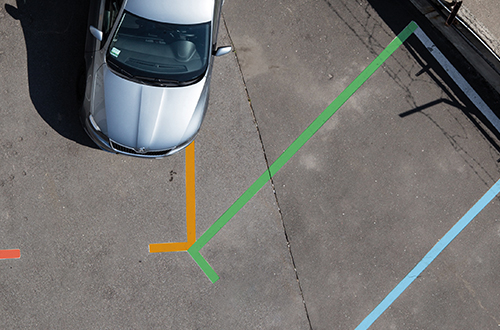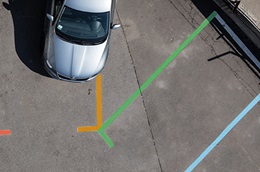#content#
Study on controlled parking zones in Spain
01 mar. 2016OCU has carried out a study on controlled parking zones in 52 Spanish cities. In addition to Cartagena, Ceuta, Gijon, Melilla and Vigo, all of the provincial capitals have been analysed. The results of the study showed that, with the exception of Badajoz, Lugo, Melilla and Santa Cruz de Tenerife, all of Spain's provincial capitals control street parking in some way. These results can be found in the March edition of OCU's Compra Maestra magazine.
According to OCU, all of the cities seek to control parking in specific urban areas by means of imposing restrictions on drivers or charging them fees. Controlled parking zones have a range of objectives to fulfil: promote the use of public transport in the city, limit pollution and also to take in money for the municipal treasury.
OCU denounces the different criteria used to set the parking rates in each city. In Badajoz, Lugo, Melilla and Santa Cruz de Tenerife, drivers are not charged for parking on the streets. According to OCU, the cheapest cities to park in are Palencia (1.15€) Ávila and Ciudad Real (1.10€), Jaen (1.05€), Ceuta (0.95€) and Zamora (0.60€). On the other hand, parking for two hours in many cities cost around 1.50€ while the price for the same amount of time reaches 6€ in Barcelona, 5.35€ in San Sebastian and 4.70€ in Madrid.
These high prices are quite similar to what one would pay for parking for two hours in a private secure parking garage where, moreover, drivers would not have to move their vehicle once this time period has expired. Along these lines, OCU questions the justification for such high parking rates in cities like Barcelona, Bilbao, Madrid, San Sebastian and Valencia.
According to OCU's study, it is the residents who live in these controlled parking zones who suffer most from these inequalities. These citizens must pay fees in order to be able to park near their residences. In many cases, said fees must be paid annually.
Once again, OCU denounces the existence of opposing criteria in various cities. Castellón is the only city in which residents can park free-of-charge in their own neighbourhoods. On the other hand, residents in Córdoba can park more cheaply in their neighbourhoods but are only allowed to park the same amount of time as visitors. The worst case is found in Oviedo where the idea of being a "resident" is not even recognised by the city.
The most common way cities manage parking for their residents is by means of a yearly permit. Nevertheless, the method used is different in cities such as Valencia, Zaragoza, Teruel or Lérida. In these cities, the resident card must be accompanied by a ticket that drivers are forced to obtain every 1, 3 or 5 days. This system is very inconvenient for residents. In other cities such as Seville, Las Palmas or Tarragona, a mixed method is used where residents can choose between an annual card or daily tickets.
This study shows that, for residents, paying the price of a yearly parking permit does not guarantee them an available parking spot. This situation forces many to get rid of their vehicles or, if they are able, to buy a spot in a parking garage. The price of spots in parking garages in central and old areas of cities can be extremely high due to a lack of garages present in these areas.
For this reason, OCU asks cities which control their parking to recognise the resident status of their citizens and not to limit the amount of time they are allowed to park on the streets. If this does not happen, residents of these zones, even though they have paid a fee for the right to park in their neighbourhoods, are not treated the same as those residents living areas where the parking is not controlled.
OCU understands that cities have the obligation to appropriately manage traffic and to fight against pollution. However, Controlled Parking Zones should not be used as a way to take in more money for the cities' treasuries, punishing their own citizens pockets.
For more information, please contact Eva Jiménez (media). Telephone: 91 722 60 61 - prensa@ocu.org www.ocu.org


